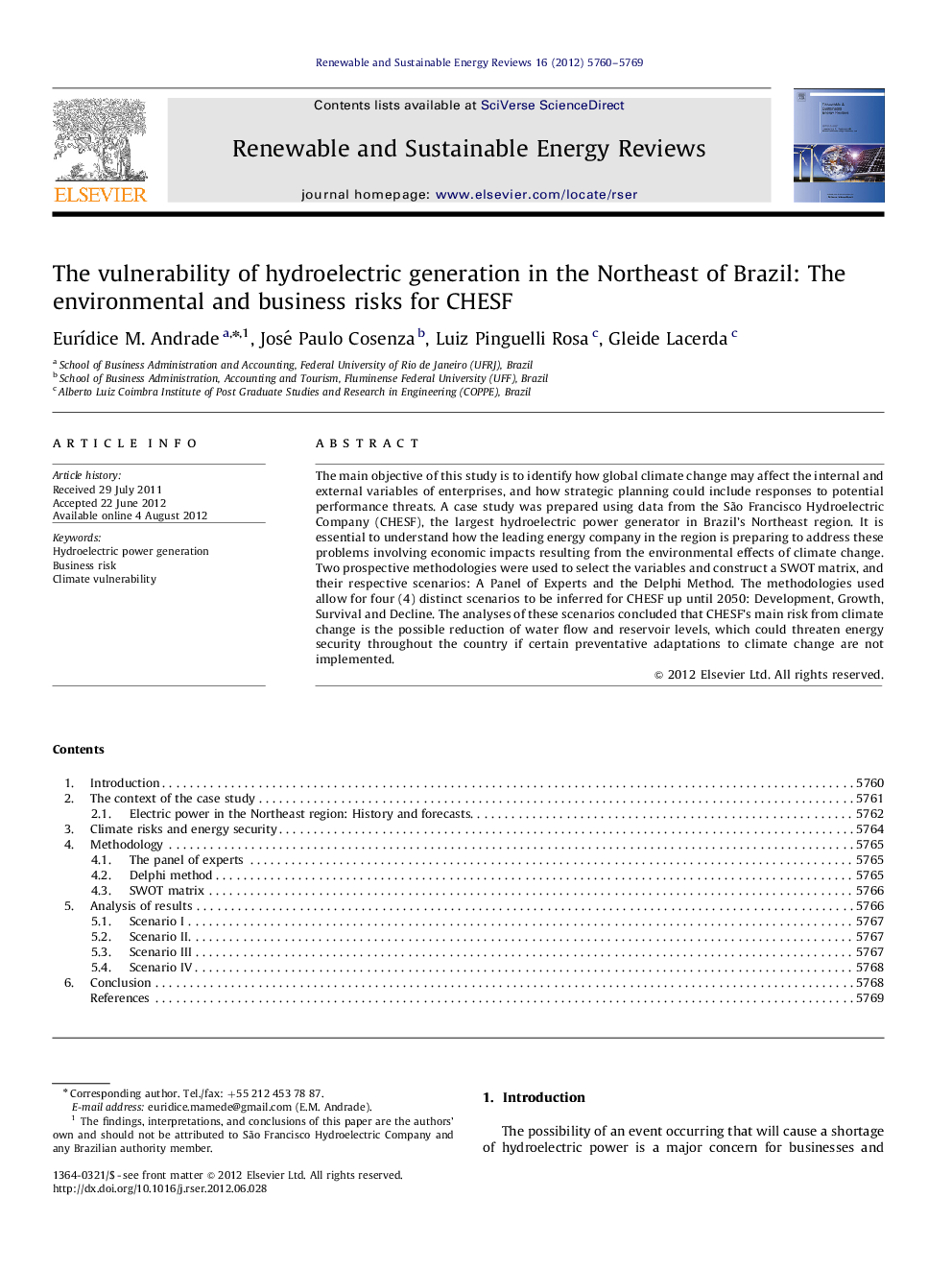| Article ID | Journal | Published Year | Pages | File Type |
|---|---|---|---|---|
| 1750629 | Renewable and Sustainable Energy Reviews | 2012 | 10 Pages |
The main objective of this study is to identify how global climate change may affect the internal and external variables of enterprises, and how strategic planning could include responses to potential performance threats. A case study was prepared using data from the São Francisco Hydroelectric Company (CHESF), the largest hydroelectric power generator in Brazil's Northeast region. It is essential to understand how the leading energy company in the region is preparing to address these problems involving economic impacts resulting from the environmental effects of climate change. Two prospective methodologies were used to select the variables and construct a SWOT matrix, and their respective scenarios: A Panel of Experts and the Delphi Method. The methodologies used allow for four (4) distinct scenarios to be inferred for CHESF up until 2050: Development, Growth, Survival and Decline. The analyses of these scenarios concluded that CHESF's main risk from climate change is the possible reduction of water flow and reservoir levels, which could threaten energy security throughout the country if certain preventative adaptations to climate change are not implemented.
